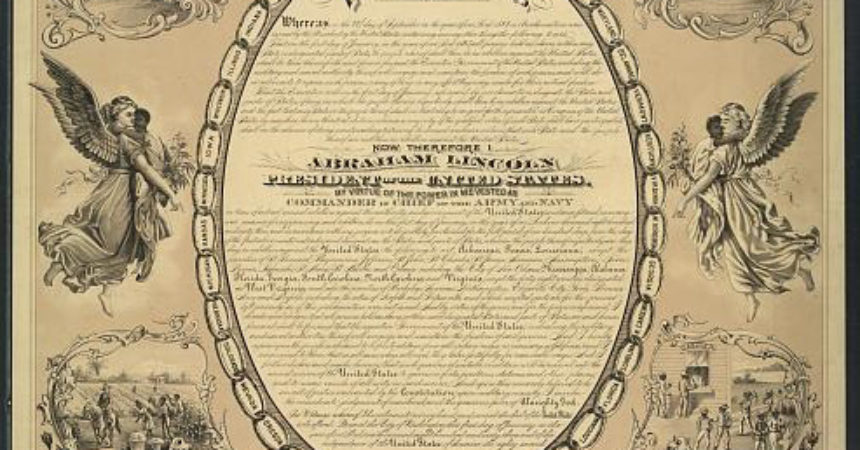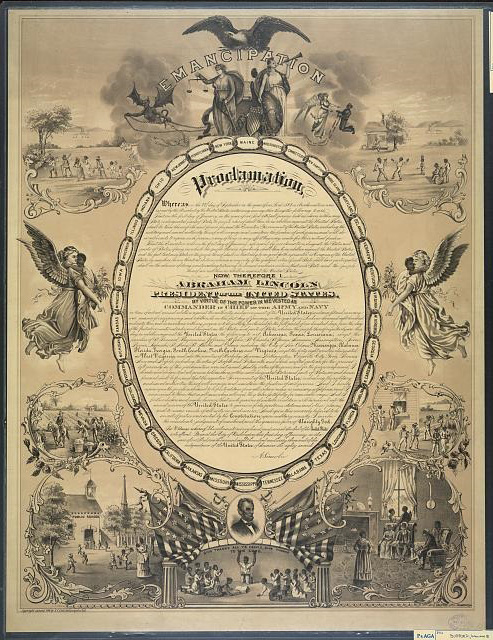
Emancipation Day was Jan. 1: We must never forget the sacrifice and the triumph
By Jesse Jackson Sr.
Trice Edney News Wire
One hundred forty-five years ago on Jan. 1, Abraham Lincoln issued the Emancipation Proclamation, helping to transform this country from a union of states into a nation, from a country stained by slavery into one moving at great cost closer to “liberty and justice for all.”
On Jan. 1, 1863, in the midst of the Civil War, Abraham Lincoln, the Republican president, issued the proclamation on his own authority as commander-in-chief “in time of actual armed rebellion” against the United States. The emancipation was grounded on his wartime powers, as a “fit and necessary war measure for suppressing said rebellion.”
The emancipation did not end slavery in the United States. It applied only to the states still in rebellion, exempting the slave owning border states such as Maryland, Missouri and Kentucky that still had slaves. Lincoln was desperate to keep the border states from joining the South. Some abolitionists ridiculed him for this. “Where he has no power, Mr. Lincoln will set the negroes free, where he retains power we will consider them as slaves,” declared the London Times.
But the doubters did not understand the significance of the proclamation and its words. The president announced, “all persons held as slaves” in the states “in rebellion against the United States” are “forever free.” He called on the newly freed people to abstain from all violence and declared that they were eligible to be “received into the armed service of the United States.” The great abolitionist Frederick Douglass hailed it immediately as “an act of immense historic consequence.”
The proclamation, as James McPherson put it in “Battle Cry of Freedom,” “marked the transformation of a war to preserve the Union into a revolution to overthrow the old order.” This was extremely controversial, even in the North. There were violent protests in both the North and the South against the use of Black troops. Black regiments were segregated, paid less than Whites and commanded by White officers.
Yet after years of battle, most Northerners would embrace anything that would help weaken the rebellion and hasten a victorious end to the war. Despite resistance, 179,000 Black soldiers and nearly 10,000 Black sailors bolstered Union forces through the end of the war. Victory, all now understood, would mean the abolition of slavery. The Emancipation Proclamation was hailed in England, ending all talk of recognizing (and aiding) the South.
The proclamation, a wartime act of necessity, turned the tide on slavery. It led directly to the 13th Amendment to the Constitution that outlawed slavery, the 14th Amendment that guarantees equal protection under the law, the 15th Amendment that prohibits states from denying the right to vote on the basis of race or color. The war — America’s bloodiest conflict — continued to take its deadly toll for over two more years after the Emancipation Proclamation. In his second inaugural address, Lincoln described the “terrible war” as “the woe due to those” in both North and South for the “offence” of American slavery.
He called for “malice toward none” and “charity for all,” that we “bind up the nation’s wounds” to create a just and lasting peace. Forty-one days later he was assassinated. Reconstruction soon was reversed into segregation, enforced by Klan terrorism. It would take another century and a civil rights movement to fulfill the promise implicit in Lincoln’s proclamation. Few Americans take the time to read the Emancipation Proclamation, yet it is as central to the foundation of modern America as the Constitution or the Declaration of Independence. The night before it was issued, there were vigils and church gatherings of people in anticipation.
This year, dozens of ministers have agreed to hold sessions to read and discuss the Emancipation Proclamation. This country paid a terrible price to remove the scourge of slavery and become one nation. At a time when some would drive us apart, it is worth remembering the sacrifice and the triumph.








